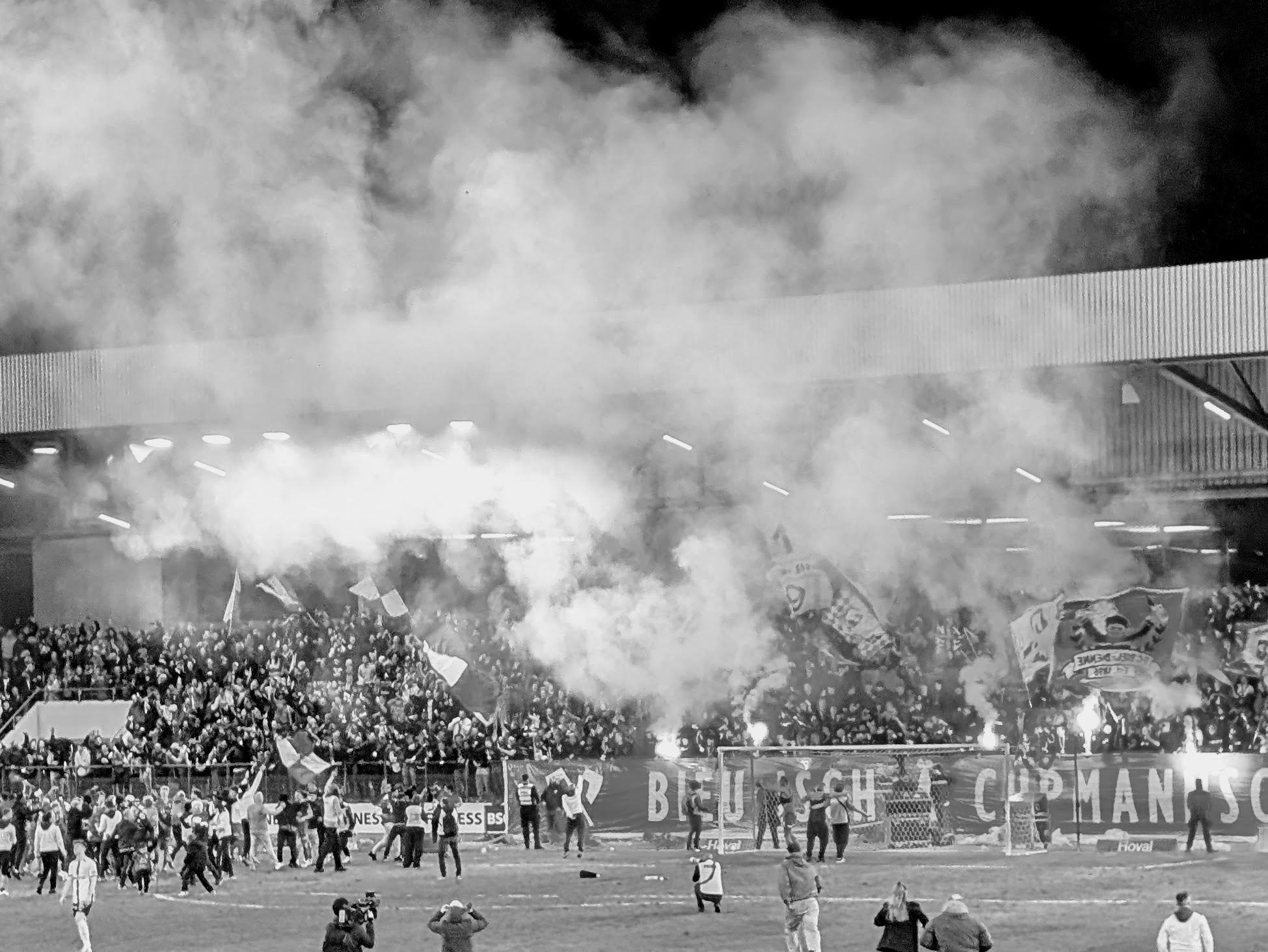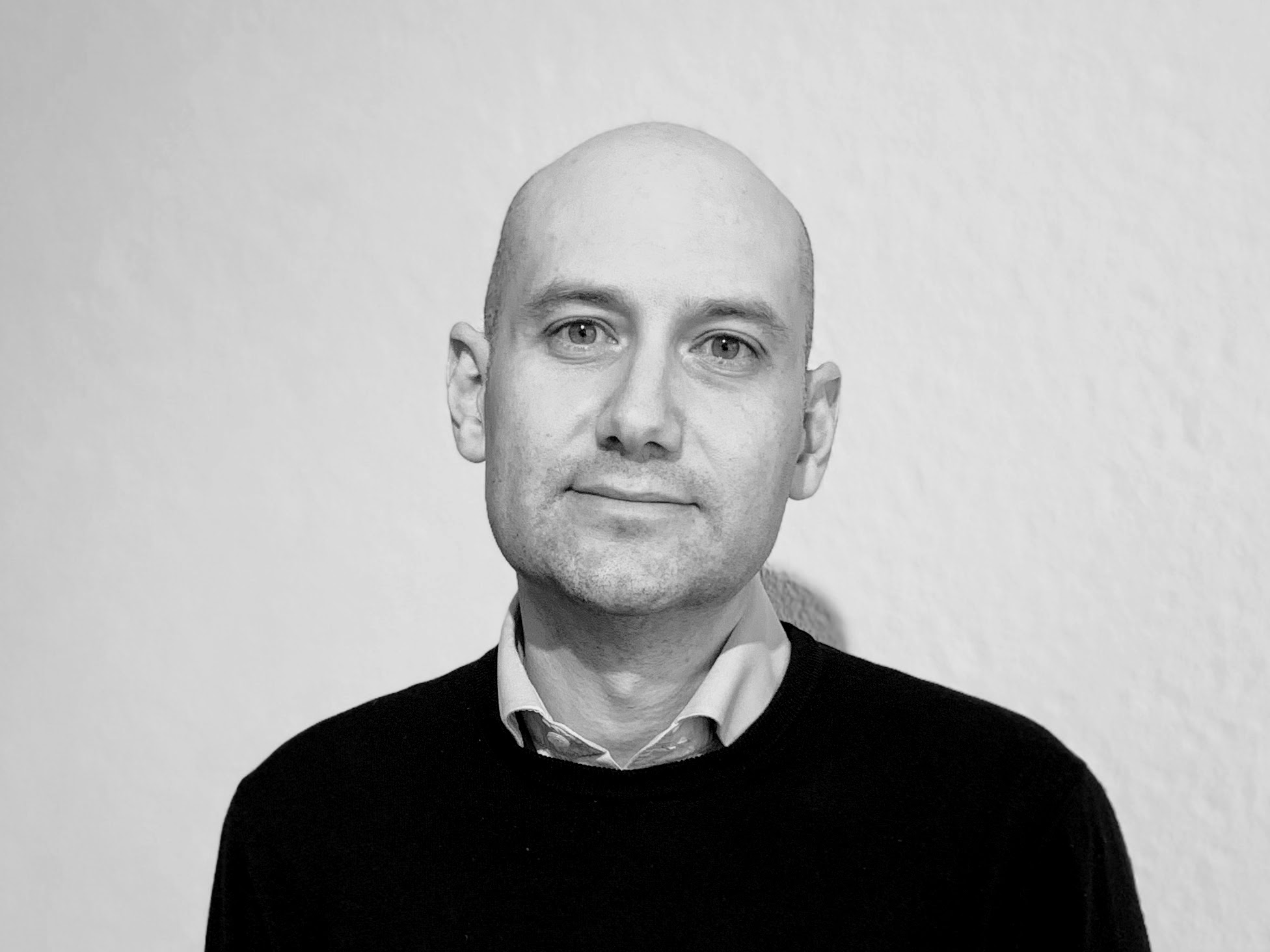
Bienne is globally renowned for its watches. As a place to live though, its image in Switzerland is uneven. A bad reputation developed during the quartz crisis era, when the city was at its lowest. It oddly seems to persist in some minds, despite how beautifully the city has developed. Even the bilingualism at the heart of Bienne’s culture and values seems to intimidate certain folks from other parts of the country. If any of this helps keep the cost of living more reasonable, it’s fine by me! On the sports side, Bienne is mostly known for ice hockey, with the team making it to the national play-off finals in 2023.

Football – also wrongly known as soccer, on the other hand, is not something Bienne is famous for. Or rather, was not until yesterday. The local team, FC Bienne, becoming the first ever third division team to reach the final of the century-old Swiss Cup, is making national headlines today. It will continue to for the weeks until the final on June 1st in Bern. Speaking of Bern, they are the ones who, despite being defending national champions, the best Swiss team over the past ten years, and regulars of the UEFA Champions League, lost last night on the pitch of their “little” neighbor.
A very uneven derby
After seven years in Switzerland, there is still much more about cultural dynamics that I don’t understand, compared to what I do. So I’m not in a good position to explain the deep sensitivities between Bern and Biel, or between Young Boys Bern and FC Bienne. Still, the basics are pretty straightforward. Bern, a 26 minute train ride form Bienne, is the country’s capital. It is wealthy, cosmopolitan, hosts the nation’s governmental and administrative elite, and has four times the population of Bienne. Bienne is not only the smaller, more industrial city, its club is, literally, in a different league – and then another league under that.

Don’t get me wrong: FC Bienne is doing exceptionally well, still in the race to get promoted to the national second division this year, and generally on a new trajectory following a very dark period up until almost a decade ago. In 2016, it was taken over by a group of regional figures, and in 2022, Core Sports Capital – who own several clubs including Clermont, in France – took a 33% stake. Under the impulse of its president Dietmar Faes and in its ulra-modern – albeit relatively small – facilities, the club seems set for sustainable growth. Still, yesterday was David against Goliath.
A very full house
For someone like me used to going to league games with the 5,100 seat stadium filled at 20% capacity, it was a bit of a shock walking to my seat surrounded by 6,000 other individuals – an extra set of rows had been added due to the incredibly high demand for the game. I had already been to a FC Bienne – Young Boys Bern when I first moved here, in August 2018. But while back then the team had already almost made the headlines – losing 3-2 in the last minutes of the game – it was only the round of 64. Yesterday, it was the semi-finals. The result of a heroic trajectory started in August against local rival – one division above – Neuchâtel Xamax until the unexpected, heroic victory against Lugano two months ago – the team that at that time was leading the Super League, Switzerland’s top division.
Despite those earlier coups, chatting with some friends outside the stadium yesterday, none of us thought a Bienne victory was possible. Even after a disappointing Champions League campaign this season – Bern finished last of the new formula – and not being as dominant on the domestic front, the team is still performing solidly in the Swiss Super League, qualified for the play-offs in May. The Cup is a top objective for them, especially with the prestige that would come with winning the 100th edition, with the final taking place in Bern, in their stadium. Bienne, on the other hand, has had an on-and-off past few weeks, losing the first spot in the third division – the only one leading to promotion.
We sat down with two of my kids, their first cousin visiting from Italy – who had already come for the game against Xamax in August, a close friend and his son, expecting to have a good time, hoping for a good game. We certainly didn’t want to admit that we secretly hoped things might turn out to be extraordinary. Despite the incredible efforts from the groups of Bienne supporters to mark their territory, it was hard to compete against the ultra-orchestrated Bern fans, their chants, smoke bombs and banners. Even playing at home, we all felt dominated before the game kicked off.

Happy. Sad. Happy.
A few seconds before half-time, as Bienne was almost miraculously holding a clean sheet thanks to its goalkeeper, Raphael Radtke, on fire. I told my kids: “you’ll see, this is when Bern will score. That’s how the big teams do it.” And sadly, I was right. We were all so disappointed and yet it felt almost inevitable, something we’d seen on so many pitches so many times before. Fireworks from the Bern supporters stands rubbed it in. But then came VAR. Unlike in the previous rounds, Video Assisted Refereeing was enabled for the semi-finals. And it found and offside. After Bern had celebrated the goal as if they’d won the Cup, we celebrated its cancelation as if Bienne had scored a goal.
Time to watch
Half-time was the opportunity for a bit of watch-spotting. As you would expect, while FC Bienne is in the third division, the watches in the stands here compete in the Champions League. A few hundred meters from Rolex’s largest production site, where all its movements are made, the Crown was well represented on many wrists. Same with Omega, the other local heavy-weight, including a lovely blue Aqua Terra on the gentleman next to me. With Formex as a club sponsor and the stadium called the Tissot Arena, it was hard to forget you were at the heart of Swiss watchmaking.

In the 60th minute, it felt that holding the score at 0-0 was already an achievement in and off itself. Bern was strong, fast and very skilled – no doubt. But Bienne had a clear tactic in place, keeping it solid at the back and preparing for a swift counter-attack when the odd chance would pop up – kudos to the French coach Samir Chaibeddra, who more than anyone else seemed convinced his team could make history.
The dream coming true
Fifteen minutes later, after a few more dramatic saves by Radtke, it finally happened: we all went wild when the referee pointed to the penalty spot after Abdoulaye Coulibaly was desperately tackled by the Bern defense. Unfortunately, VAR concluded it should be a free kick, just outside the box. Still, with Kastriot Imeri receiving a red card for his tackle, it finally felt, at 11 against 10, like an almost even game.

After an excruciating wait, including 8 minutes of stoppage time, the second half was over. Despite the advantage of having an extra player on the pitch, we all felt Bern’s physical condition would tip the game in their favor, as the Bienne crew, understandably, seemed exhausted.
Six minutes into extra-time, what we’d almost stopped hoping for happened. David von Ballmoos, the Bern keeper, despite his extensive experience, burst onto Bienne’s Loïc Bongué in what seemed like a kamikaze and unnecessary move.
Once more, the ref pointed to the PK spot. And no VAR to contradict him this time. The tension was at its peak. Even FC Bienne President Dietmar Faes got up from his seat and walked to the side of pitch, to watch the decisive moment up close.
I have no idea how 20 year-old Malko Sartoretti kept his cool to wrong-foot the Bern keeper, in front of over one thousand YBB supporters doing everything they could to make him lose it. But he did. And we shouted to the top of our lungs.

Final fears
The drama didn’t end there. It was nerve-racking. When, a few minutes later, Lakomy hit a missile deflected by the Bienne keeper on the crossbar, I could have sworn I felt the vibration in my chest. And then, when Bern scored in the last few seconds of stoppage time, I wanted to cry. Once more, they celebrated as if they’d clinched the trophy. Once more, we could thank VAR. As the replay rightly showed, there was a hand ball. No goal.

A few seconds that felt like long minutes later, it was over. In disbelief, we shouted, we hugged, we clapped. As the – superhero-level equipped – police stood between the Bern players and their angry fans, I tried to find my 12 year old son who’d broken the rules and jumped on the pitch, high-fiving the stars of a game he originally didn’t want to attend. It was a beautiful night, in a beautiful city. The best watches are meant to last generations. Some memories will too.




Nice pictures, very nice write-up. I feel like I was there! Thank you for sharing. Moments like that remind you why you love the sport. Not a very well-known fact: the Hans Wilsdorf Foundation saved the Geneva football club, Servette FC, from bankruptcy with a double-digit million donation 10 years ago. So, does Rolex sponsor football? Technically, no… and, yet, yes. At least, Rolex watches helped pay for it.
Thanks a lot Danny. That’s super interesting about Servette – who actually won the Swiss Cup last year!